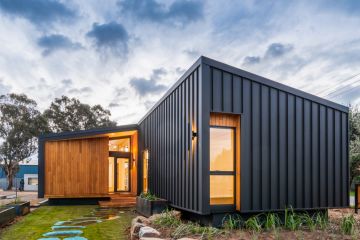Selling in season: When’s the best time to sell?

It’s no wonder people traditionally sell their homes in spring: everything’s in bloom, brighter and looks great. But talk to real estate agents and drill down on sales results, and you’ll find that the best season to sell your particular property isn’t necessarily spring.
The right season depends on a huge variety of factors, including the property itself, its surroundings and area you live in. For example, are you in a tourist spot? A beach suburb? Or are there events on at certain times of the year that turn your normally quiet street or suburb into a car park?
There can also be a huge advantage in marketing your home during traditionally quiet periods – winter, for example, or from mid-January into February, when other sellers are still on holidays. With fewer properties to choose from, more of the buyers will get to see your place.
Regardless of the time of year you decide to sell, there are some absolute must-dos:
- Thoroughly clean your property from top to bottom – inside and out
- Trim overgrown gardens; remove weeds and dead growth and refresh garden beds with mulch
- Address any off-putting maintenance issues, such as peeling paint, worn or marked carpets, cracked tiles, dirty grout and loose or rusted gutters (if you’re selling a knockdown or “renovator’s delight”, this step often isn’t necessary)
- Banish any pet smells
- Furnish the home in an attractive but not overly cluttered or personal way, to give potential buyers a perspective on room sizes and to present the home in its best light
- Pay for professional photographs and good marketing
After you’ve tackled the any-time-of-year jobs, you can focus on seasonality and how it may influence how you present and market your home.
Spring
Ensure the property is well aired, especially if you’re just moving out of cooler weather and the home has been closed up a lot. Remove any mould spots from ceilings, walls and window frames that might have crept up in winter (diluted clove oil or an 80 per cent white-vinegar solution both kill mould). Because people favour the outdoors in spring, it’s a good time to focus on getting those outside areas up to scratch. Fertilise the lawns and gardens to freshen them up from winter. If your pavers are dirty, pressure-wash them, and recoat tired, weathered decks. Finally, add some bright touches to suit the season, such as cushions and towels.
Summer
Some properties, such as holiday houses by the coast or river and elevated properties that get cool breezes, particularly lend themselves to being sold in summer. Likewise, homes that are generally quite dark and cold in winter. If a property has a lot of unshaded, west-facing windows and gets particularly hot in the afternoon, it may be worth holding inspections only in the mornings, or you may want to consider selling in a different season. If you do need to cool down a property, try to do so a few hours before any inspections so that potential buyers will feel very comfortable as they look through. And this season, when looking at accents such as cushions and throws, opt for cooler blues and greens.
Autumn
Autumn can often be a busy time in real estate, as families have had time to recover from the summer holidays and get into a new school year before thinking about moving house. As the weather can vary, again remember to keep the home comfortable during inspections. In autumn, that could mean turning on the air-con one day and the heater the next! For accents, think a few cosy touches that suit the cooler temperatures, such as textured cushions and warmer colours.
Winter
Homes that get great winter light can really stand out during the cooler months. Those west-facing windows that were a problem in summer can make for a real bonus from June through August. Draw back the curtains and blinds on all windows and let as much light and warmth in as possible.
In the cooler parts of Australia, the focus should be on feeling warm and comfy. So light the fire or switch on the heat, turn on all the lamps and add some warm reds and oranges to your soft furnishings.
Also, be sure to consult your agent about the best time of day to show your home. For example, if you have lots of north-facing windows and receive plenty of winter sunshine, you’ll probably want to show it during the day.
Armed with these presentation tips and tricks, you’ll have a better shot at selling your home – no matter what the season.
We recommend
We thought you might like
States
Capital Cities
Capital Cities - Rentals
Popular Areas
Allhomes
More







